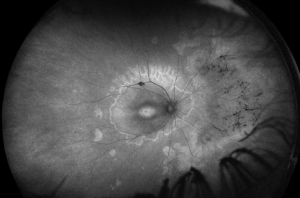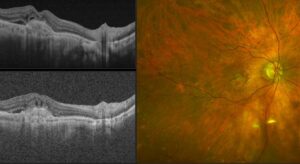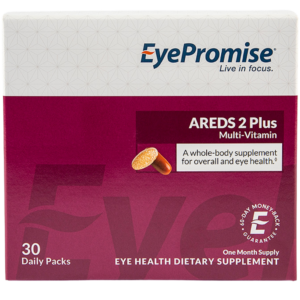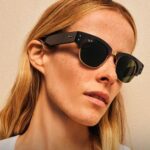Age-Related Macular Degeneration (AMD) | Elite Eye Care
Discover comprehensive information about Age-Related Macular Degeneration (AMD) at Elite Eye Care. Learn about AMD causes, symptoms, treatment options, lifestyle changes, prevention, and support resources for living with this progressive eye disease. Schedule an appointment to discuss personalized AMD care with our expert team and Low Vision Specialist, Dr. Casey.
Age-Related Macular Degeneration (AMD) is a progressive eye disease that affects the central part of the retina, known as the macula, leading to central vision loss. At our practice, we understand the impact of AMD on your vision and overall quality of life. That’s why we provide comprehensive information about this condition and the latest treatment options to help you make informed decisions for your eye health.
Understanding AMD: Causes and Risk Factors
Learn about the common causes and risk factors associated with Age-Related Macular Degeneration. Factors such as age, genetics, lifestyle choices, and other contributors play a crucial role in the development and progression of AMD. Early awareness of these factors empowers you to take proactive steps in preserving your vision.
Recognizing AMD Symptoms and Early Detection
Identifying AMD symptoms early is vital for timely intervention. The hallmark signs of AMD are blurry or distorted vision. Regular eye exams are important for early detection and effective ma macular degeneration macula fungus photo
- Dry Age-Related Macular Degeneration (AMD):
- Characteristics: Dry AMD is the more common form of AMD, accounting for about 80-90% of cases. It is characterized by the presence of small yellow deposits called drusen in the macula, which is the central part of the retina responsible for sharp, detailed vision. Over time, these drusen can accumulate and lead to thinning and deterioration of the macular tissues.
- Progression: Dry AMD typically progresses slowly, and its severity can vary from mild to advanced stages. In some cases, it may remain stable and not cause significant vision loss. However, in more advanced stages, the macula’s degeneration can result in central vision impairment.
- Visual Impact: In the early stages of dry AMD, a person may not experience noticeable vision changes. As the disease progresses, central vision may become blurred or distorted, making it difficult to read, recognize faces, or see fine details. Straight lines may appear wavy, and dark spots or blind spots may develop in the central visual field.
 Wet Age-Related Macular Degeneration (AMD):
Wet Age-Related Macular Degeneration (AMD):
- Characteristics: Wet AMD, also known as neovascular AMD, is less common but more severe than dry AMD. It occurs when abnormal blood vessels grow beneath the retina and leak fluid and blood into the macula. This can cause significant damage to the macular tissues.
- Progression: Wet AMD can progress rapidly and lead to sudden and severe vision loss if not treated promptly. The leakage of fluid and blood can cause swelling and scarring in the macula, leading to irreversible damage to the central vision.
- Visual Impact: The visual impact of wet AMD is more dramatic than dry AMD. People with wet AMD often experience rapid and severe loss of central vision, which can make it challenging to perform daily activities like reading, driving, and recognizing faces. Straight lines may appear distorted, and dark spots or blind spots in the central vision may be present.
AMD Treatment Options: Promoting Vision Health
 There are a range of treatment options available for AMD, including medications, anti-vascular endothelial growth factor (anti-VEGF) injections, photodynamic therapy, laser therapy, and nutritional supplements. Our office recommend EyePromise AREDS2 formula.
There are a range of treatment options available for AMD, including medications, anti-vascular endothelial growth factor (anti-VEGF) injections, photodynamic therapy, laser therapy, and nutritional supplements. Our office recommend EyePromise AREDS2 formula.
Managing AMD and Vision Loss
We are here to support you in managing vision loss due to AMD via vision aids, adaptive techniques, and support services available to enhance your independence and daily activities. Our expert team, in collaboration with Low Vision Specialist Dr. Casey, will guide you through the most suitable treatment plan tailored to your specific needs.
Lifestyle Changes for AMD: Promoting Eye Health
- Healthy Diet for AMD: A diet rich in certain nutrients can be beneficial for AMD and overall eye health. Consider incorporating the following into your diet:
- Omega-3 Fatty Acids: Found in fatty fish like salmon, mackerel, and tuna, as well as in flaxseeds and chia seeds. Omega-3 fatty acids may help reduce inflammation in the eyes and support retinal health.
- Antioxidant-Rich Foods: Foods high in antioxidants, such as leafy green vegetables (spinach, kale), colorful fruits (oranges, berries), and nuts, can help protect the eyes from oxidative stress and damage caused by free radicals.
- Zinc: Found in foods like lean meats, seafood, nuts, and whole grains, zinc is essential for maintaining eye health and supporting the retina.
- Vitamins C and E: These vitamins are potent antioxidants found in citrus fruits, berries, almonds, and sunflower seeds, and they play a role in protecting the eyes from cellular damage.
- Regular Exercise: Engaging in regular physical activity can have positive effects on eye health and may help slow AMD progression. Exercise improves blood circulation, which is essential for delivering oxygen and nutrients to the eyes. It may also help reduce the risk of developing other health conditions that can exacerbate AMD.
- Smoking Cessation: Quitting smoking is crucial for slowing AMD progression and preserving vision. Smoking is a significant risk factor for AMD and can increase the likelihood of developing the more severe wet AMD. When you quit smoking, you lower the damaging effects of toxins on the retina and blood vessels, improving overall eye health.
Advancements in AMD Treatment: The Latest Research
This is a topic that is always evolving! At Elite Eye Care, we will share information about potential new therapies and ongoing clinical trials, offering hope for improved vision outcomes.
Preventing AMD: Protecting Your Eyes
Your Eyes
Prevention is key to reducing the risk of AMD. Essential steps to maintain eye health, include adopting a healthy lifestyle, protecting your eyes from harmful UV exposure, and managing underlying health conditions.
Take charge of your eye health and gain a deeper understanding of Age-Related Macular Degeneration with Elite Eye Care. We are dedicated to preserving your vision and enhancing your quality of life. Schedule an appointment today to discuss your AMD concerns and explore personalized treatment options with our experienced eye care team.